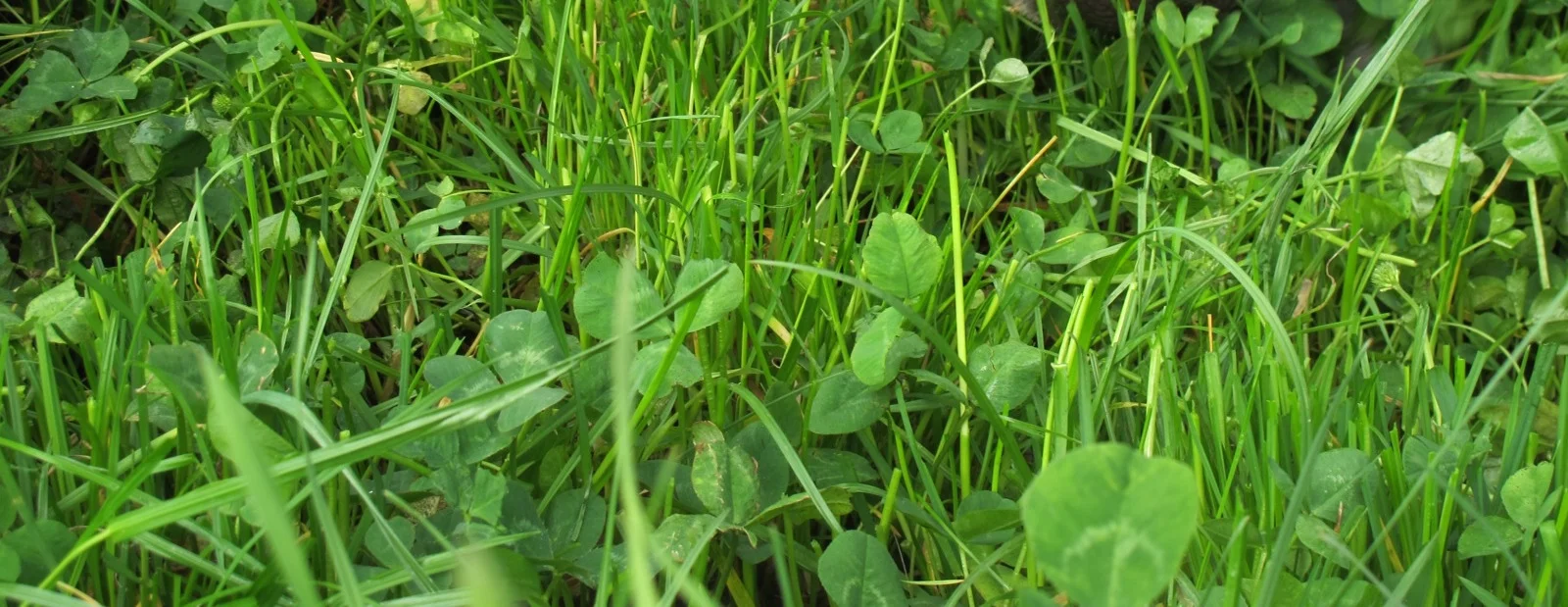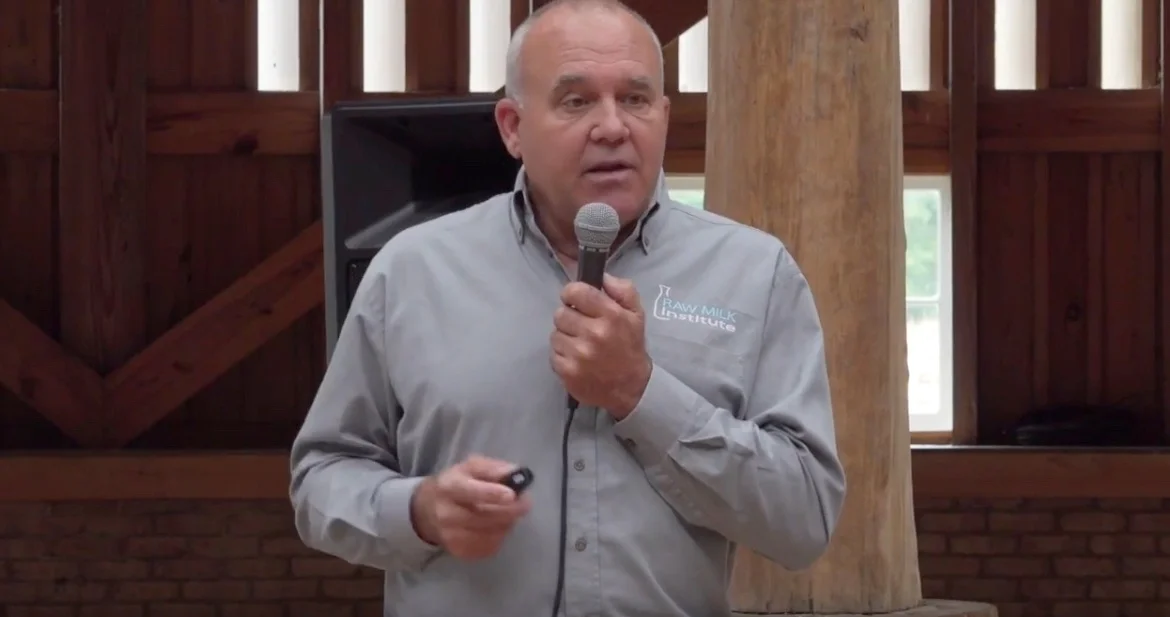On the 8th of September 2018, a Hudson, upstate NY biodynamic farm Churchtown Dairy became the 17th to be listed with the Raw Milk Institute.
The day was celebrated in the magnificent open circular barn shown in the video below. The dairy was open to visitors who wanted to watch the milking in the morning or afternoon, and to purchase raw dairy products. A number of long time raw milk proponents were also there to congratulate Abby Rockefeller and her team, like soil scientist Joseph Heckman, medical microbiologist Peg Coleman, raw milk advocate and farmer Liz Reitzig, and Organic Pastures dairy herd manager Blaine McAfee. Mark McAfee, chairman of the Raw Milk Institute also gave a talk titled Raw Milk: Like No Other Food on Earth. Mark said that the team has been hard at work refining their RAWMI RAMP for the last several months, and their test results are awesome. He certified the dairy on behalf of RAWMI on the day.
Churchtown Dairy is a 250 acre farm with 28 predominantly grass-fed Swiss Brown, Jersey and Guernsey cows. Calves are kept with their mothers and run with the herd, causing a slight decrease in milk production but also reducing stress on both the mother and the calf and thereby contributing to the harmony of the herd. The farm is a beacon for those working to promote sustainable agriculture and sustainable communities. In the spring, the circular barn is vacated by the cows and leaves room to serve as a hub for community oriented events. Churchtown Dairy have been producing and selling raw milk since 2014, before becoming RAWMI-listed. Raw milk is regulated in the state of New York by the Department of Agriculture. Licensed farm sales have been legal for a decade. There are nearly 50 dairies licensed in 2018.
““Raw milk is the first food of life and builds immunity and strength. Yes, a mother’s milk is raw milk. It is an optimal first nourishment but also has been the focal point for vicious food fighting for more than 110 years. With the discovery of the human biome and human genomics, raw milk comes center stage. Now we have the possibility to assure that raw milk is safe, yet stays unchanged and whole. It is now fostering the health of our immune systems that have been suppressed and weakened by antibiotic abuse, GMOs, preservatives, pesticide and herbicide exposure, and sterilized foods. It is time to embrace the farmer and strengthen and heal thyself gut biome first!” - Mark McAfee”
In the video, Mark McAfee explains that scientists now know that we need a lot of bacteria, a biodiversity of bacteria and the food to feed that bacteria. He says we are losing our biodiversity in the gut, which has a tremendous effect on stem cell differentiation and the function of our immune system. Our immune systems will be stronger when we are exposed to more diversity of bacteria.
At the 27 minute time marker, Mark talks about Dr. Annett Jewett PHD at the UCLA Cancer center, who discovered that a large amount of bacteria is critical early in life to differentiation of stem cells, as well as control of inflammation in the body. Some of her early work has shown prevention and recovery from cancer. He says that Dr. Jewett found that stem cells misbehave, like become cancer cells, when they don’t have the load and biodiversity of bacteria. Mark also recommends Dr. Bonny Basler’s TEDx video about the human biome and genome on why we are literally “bacteriosapiens”. Mark says the biome is what drives us genetically. “…They found out that there is 24,000 genes that make us human in terms of the framework, but that the deeper genetics was incredibly complex and it was made up of like 93% of the bacteria in our body, that actually share genomic information, genes, with our human cells, to complete our genome.” He says that Dr. Bassler’s diagrams show that the relationship of the cell count in our body of bacteria cells to human cells, are 10 to one. Mark says the bigger take-home message is the relationship between the DNA contributed by that bacteria; it is 100 to one.
For more information on why commercial probiotic pills are potentially dangerous to our health when used to re-seed the gut after anti-biotic use, see this article.
Video: by HummingbirdFilms on 2018-09-29.
British Colombia PUBMED Research
A few days after the event a huge pro raw milk study was released.
According to the October 2018 newsletter of the Raw Milk Institute, there has finally been an important peer-reviewed publication that address some of the publication bias present in medical literature. Two researchers, Dr. Joanne Whitehead and Bry Lake, have analysed trends in foodborne disease outbreaks in the USA and compared these trends in relation to estimates of raw milk consumption. This study indicates that the messages from the CDC that raw milk associated outbreaks are increasing is not correct. The study also indicates that the numbers of outbreaks associated with raw milk in relation to the estimated annual quantities consumed is actually decreasing. This was attributed to that raw milk producers have become much more aware of food safety and hygienic production systems are used.
In North America, the early challenge for farmers used to be a lack of education and on-farm food safety programs. This changed in 2010
when the Farm-to-Consumer Legal Defence Fund made training materials available and the Raw Milk Institute began developing a HACCP-based on-farm food safety program. In 2011 RAWMI published their Common Standards. The decline in frequency of outbreaks coincides with the introduction of these targeted education programs. "Many farmers are adopting safe food production systems and learning from RAWMI training, whether listed farmers or not, through training, webinars, workshops, and peer-support. This could be called “the RAWMI effect”"
The study’s authors suggest broader implications beyond providing insights into the long-running debate over raw milk safety by arguing that “given the potential for significant public health benefits which could be gained from a reduction in immunological disorders, a re-evaluation of the risk/benefit profile of unpasteurized milk is in order.” Read more here.
To find a raw milk producer in New York state, see this list. There are nearly 50 dairies licensed in 2018. Also see the map below. Please note, it is not certain how up to date the map really is, because it was started many years ago:



